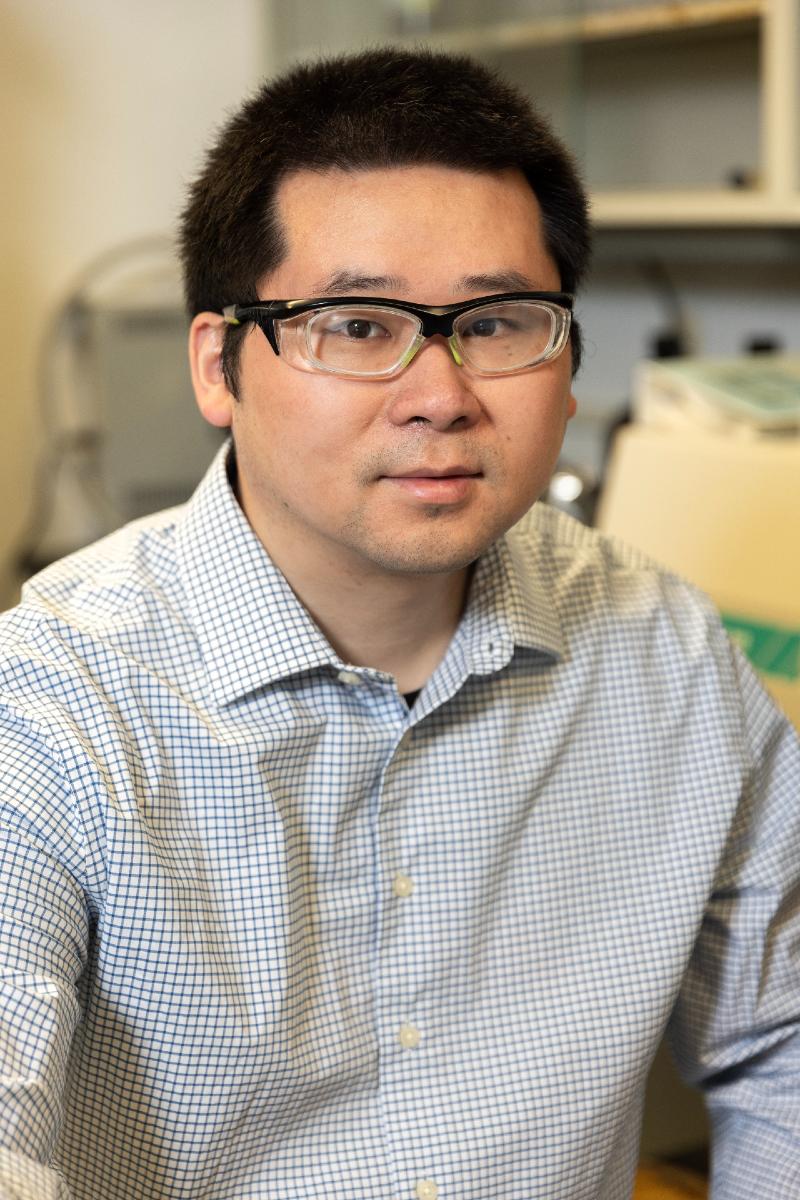Award Date:
UCSB assistant professor named an HHMI Freeman Hrabowski Scholar, pioneering new frontiers in enzyme design by blending chemistry, biology and AI.

Yang Yang, UCSB assistant professor
University of California, Santa Barbara assistant professor Yang Yang has been named a 2025 Freeman Hrabowski Scholar by the Howard Hughes Medical Institute (HHMI), making him the first UCSB faculty member to be affiliated with HHMI.
The Freeman Hrabowski Scholars program supports outstanding early-career researchers with strong potential to become leaders in their fields. Scholars prioritize scientific excellence in their own research while creating lab climates in which everyone can thrive. The program provides funding that includes salary, research budgets, and scientific equipment for five years, with the possibility of renewal for an additional five years based on successful progress. In addition to financial support, the program offers professional development opportunities and access to HHMI meetings to help scholars enhance their leadership and mentoring skills.
Yang said, “I am grateful for the generous support from HHMI. This special HHMI appointment and unrestricted research support will hopefully allow my group to explore the boldest and most exciting ideas in enzyme research in the coming decade. We hope to continue inventing and evolving novel enzyme functions of use in biomedical research.
“Furthermore, by combining our knowledge of synthetic chemistry, synthetic biology, computational chemistry and computational biology, we will also delve into new areas to advance a substantially improved understanding of enzyme structure-activity relationships and design principles, further broadening the use of tailored protein catalysts in various settings.”
Yang Yang, an assistant professor in the Department of Chemistry and Biochemistry, leads the Yang Lab, which includes 11 postdoctoral scholars, eight graduate students and several undergraduate students. His group combines chemistry, biology and artificial intelligence to create new enzyme functions found in nature or previously developed by synthetic chemists. A major focus of the ongoing research in the Yang lab is to design, discover and evolve new enzyme functions which were previously unknown in biology, and in some cases, to chemistry as well.
Over the past five years, the Yang lab has developed two new strategies to convert metalloenzymes and pyridoxal phosphate enzymes into catalysts for previously unknown radical reactions with excellent stereocontrol – reactions that small-molecule catalysts cannot achieve. These breakthroughs have been featured in “Science” (2021, 2023) and “Nature” (2024), with prior coverage in “The Current.” The lab has also begun designing enzymes from scratch, using computational chemistry and biology to create de novo protein catalysts. This work supports challenging stereoselective chemical transformations with potential applications in medicinal chemistry and biomedical research. A recent advance was published in “Science” (2025), with additional coverage in “The Current.”
“The HHMI’s Freeman Hrabowski Scholar award is a well-deserved and exciting recognition of Yang's accomplishments and directions,” said Alison Butler, chair of the Department of Chemistry and Biochemistry at UC Santa Barbara.
“Congratulations to Professor Yang on this tremendous honor,” said Shelly Gable, interim dean of the Mathematical, Life, and Physical Sciences division within the College of Letters & Science. “This prestigious award affirms the impact of his research and underscores the depth of talent and innovation within our division.”
Yang earned his bachelor's degree in chemistry from Peking University and completed his Ph.D. in organic chemistry at the Massachusetts Institute of Technology under the direction of Professor Stephen Buchwald. His graduate work integrated organic, organometallic and physical organic chemistry to develop transition-metal-catalyzed methods for organic synthesis.
During this time, he also spent a summer with Professor Peng Liu at the University of Pittsburgh, where he gained experience in computational chemistry. Yang then conducted postdoctoral research as an NIH Postdoctoral Fellow with Professor Frances Arnold at the California Institute of Technology. With Professor Arnold, Yang was introduced to the fields of biocatalysis, directed evolution and protein engineering, and he has been fascinated by enzyme research ever since. He joined UC Santa Barbara in 2020.

